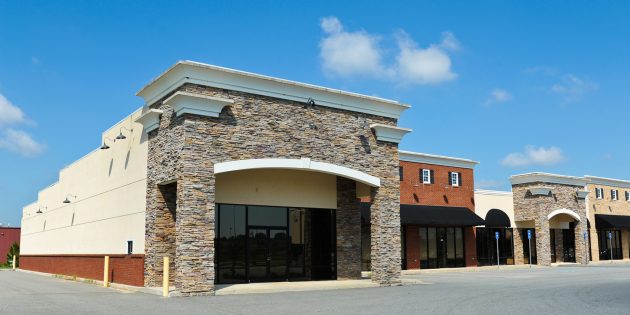In Part 2 of our three-part post, we will share some information on what commercial liability and commercial property are, and why your business may need this type of insurance coverage.
Liability Insurance protects you from law suits that result from property damage or bodily injury due to a negligent act. Negligence occurs when a duty of care is owed to another party, a breach of such duty occurs, and a causal relationship between the breach and damage exists. Examples of negligence can range widely such as a failure to clear snow from sidewalks or walkways (slip and fall).

 A Commercial General Liability policy includes the following:
A Commercial General Liability policy includes the following:
- Premises Liability – the liability resulting from occupying a specific space
- Operations Liability – the liability resulting from the performance of your work
- Products Liability – the liability resulting from the purchaser’s use of your product
- Completed Operations – the liability resulting from work you have completed incorrectly
Most Commercial General Liability policies include additional endorsements, the most common being:
- Tenant’s Legal Liability – covers damage to the landlord’s property caused by you as a tenant while renting the location
- Personal and Advertising Injury – often confused with bodily injury, this is coverage for damage to someone’s reputation or to someone’s emotional well-being (for example, false arrest, wrongful prosecution, wrongful eviction, wrongful entry, libel, slander, or privacy violation resulting from a publication)
- Non-owned Auto – provides coverage in the event an employee is involved in an accident while running an errand for you in their own vehicle
The limits for a Commercial General Liability policy can range from $1,000,000 and higher, with $2,000,000 being common. When deciding on what limit to purchase, it is important to consider the worst case scenario for your specific situation, including how much damage you think could possibly occur or as required by a contract. Quite often, the cost is minimal to increase the coverage to a higher limit of $5,000,000.
In the event of a claim, the Insurance Company may pay to defend you and, if you are found responsible, may pay a determined settlement amount up to your limit of insurance. The duty of the Insurance Company to defend does not apply to any intentional actions.
As with all insurance policies, there are certain warranties and exclusions that apply in a Commercial General Liability policy. These policies do not have mandatory wordings and each Insurance Company’s wordings are tailored to accommodate the risk.
While Commercial General Liability insurance provides coverage for law suits, Commercial Property insurance provides coverage for a business’ buildings, equipment, and/or contents.

 The majority of Commercial Property insurance policies, or Business policies, include extra coverage which was designed to fill in exclusions under the base wording. These include items such as:
The majority of Commercial Property insurance policies, or Business policies, include extra coverage which was designed to fill in exclusions under the base wording. These include items such as:
- Endorsements – changes directly on the property policy
- Following Form Policies – separate policies that have the same exclusions as the base property policies
- Stand-Alone Policies – policies that have their own separate wording
Some of the most common Endorsements on a Commercial Property policy include:
- Sewer Backup
- Earthquake and Flood
- Debris Removal – provides a separate limit as opposed to taking away coverage from the available rebuild limit
- Vacancy Permit
- Installation Floater – removes the exclusion for damage to equipment or stock while it is actually being worked on
- Paving – removes the exclusion to walkways and parking lots
- Power Interruption – removes the exclusion to loss due to power outage
- By-laws
Some of the most common types of Following Form Policies include:
- Business Interruption
- Valuable Papers – cost to recreate expensive documents
- Accounts Receivable – cost to recreate your general ledger
Some of the most common types of Stand-Alone Policies include:
- Auto
- Aviation
- Marine
- Exhibition Floater – removes the contents outside of premises exclusion
- Sign Floater – removes the exclusion for exterior signs
- TV Floater – removes the exclusion for antennae, satellites, and communication towers
- Boiler & Machinery – equipment breakdown coverage, removing the exclusion for the breakdown of anything under pressure, refrigeration systems, and electrical systems from arching
- Glass Floater – removes the exclusion for exterior glass
- Crop
- Mortality – coverage for livestock
- Crime – includes theft by employees
- Fine Arts Floater
- Marine Cargo
- Outbreak – removes the exclusion for contamination
- Cyber Crime
- Contractor’s Equipment – removes the on-premises exclusion
- Tool Floater – removes the on-premises exclusion
- Miscellaneous Property Floater – removes the on-premises exclusion
Commercial Property insurance policies can be issued as a “package”, which is usually less expensive. The policy is pre-made for what the Insurance Company thinks a specific type of business will need. However, within the packaged policy, the limits on some types of coverage may be insufficient and other types of coverage may not actually be needed.
Commercial Property insurance policies can also be individually tailored to a customer. These types of policies take more time to quote and are generally more expensive than a pre-designed package. However, the coverage is what is actually needed by the specific business.
For more information on Commercial Liability or Commercial Property insurance, or if you would like to obtain a quote for your business, please contact our Office and one of our Commercial Brokers would be happy to assist you!
Thank you,
The Costen Insurance Team




